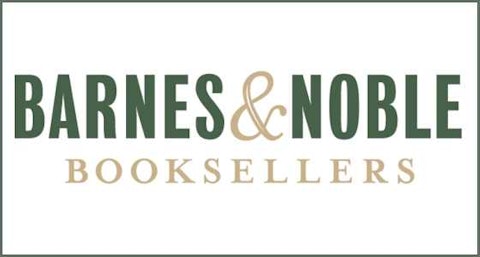Despite negative sales trends in each of its business lines, national book chain Barnes & Noble, Inc. (NYSE:BKS) continues to find investors that see good value in its retail stores and Nook technology unit. In December, British publisher Pearson bought a 5% stake in the Nook business that valued the segment at roughly $1.8 billion. The move followed Microsoft Corporation (NASDAQ:MSFT)’s earlier purchase of a 17% stake in the Nook unit, which valued it at a similar level. More recently, Barnes & Noble’s chairman has disclosed an interest in acquiring the retail side of the business. So, is there an investment angle for the small investor?

In the first nine months of FY2013, the company has posted weak overall results, with a 3.3% decline in total sales and a $47.6 million operating loss. Rising profits in the retail and college bookstore segments have been more than offset by large losses in the Nook unit. While Barnes & Noble’s digital content sales continue to rise, sales growth of the devices themselves has stalled noticeably lately, leading to an inventory write-off during the period. The company has tried to counter the sales trends by adding additional content, including its recent partnership with a group of Hollywood studios to add their video libraries to the Nook network.
While Barnes & Noble, Inc. (NYSE:BKS)’s retail segment may be bought by outside investors, the Nook unit looks unlikely to survive on its own. However, major investor Microsoft Corporation (NASDAQ:MSFT) may decide to purchase the remainder of the company with a small portion of its excess cash holdings. Microsoft has spent much of the past decade trying to find growth opportunities in a post-PC world.
In FY2013, Microsoft has posted weak results, with decreases in revenues and operating income of 2.1% and 13.9%, respectively, versus the prior-year period. While the company’s Windows and Office products continue to generate solid profits, Microsoft Corporation (NASDAQ:MSFT) has struggled to find profitability in its online initiatives. In addition, Microsoft’s operating profit margin was hurt by rising costs of new product introductions, including the Windows 8 operating system and the new Surface tablet.
Looking ahead, Microsoft’s goal is to place its Windows operating system on an increasing number of devices used by its 1.3 billion customers around the world. As part of its 2012 investment in Nook, Microsoft already agreed to fund the acquisition of content and the development of Windows apps for Nook devices. An outright acquisition would also allow Microsoft Corporation (NASDAQ:MSFT) to control next-generation product development and economize on its internal investments in the tablet space.
Of course, everyone is chasing Apple Inc. (NASDAQ:AAPL)’s iPad, the worldwide leader in the tablet segment. Consumers have increasingly shifted from e-reader devices to multi-purpose tablets that have web browser and e-mail capabilities. Apple Inc. (NASDAQ:AAPL) has continued to ride its overwhelming product popularity to dominate the segment, with 22.9 million iPad devices sold in its latest fiscal quarter.
While Apple Inc. (NASDAQ:AAPL)’s sales grew 18% in the first quarter of FY2013, its operating income fell slightly versus the prior-year period, leading to a recent sharp decline in its stock price. The company’s gross margin declined due to higher manufacturing costs and lower price points for new products, including the popular iPad Mini. However, Apple Inc. (NASDAQ:AAPL)’s operating margin remains above 30% and the company generated strong growth in digital downloads through its iTunes store. With over $130 billion in excess cash, the company has an unmatched ability expand its content library and pursue the development of the next generation of reading devices.
Barnes & Noble is at a crossroads and is relying on its partners to help fund product development activities at its Nook unit. Given competition and tech advances in the reader device market, Barnes & Noble, Inc. (NYSE:BKS) is relatively capital-constrained and needs to offload the unit to a larger, more diversified enterprise. While Nook looks for its own happy ending, investors should watch this drama from the sidelines.
The article Can the Nook Find a Home? originally appeared on Fool.com and is written by Robert Hanley.
Copyright © 1995 – 2013 The Motley Fool, LLC. All rights reserved. The Motley Fool has a disclosure policy.





